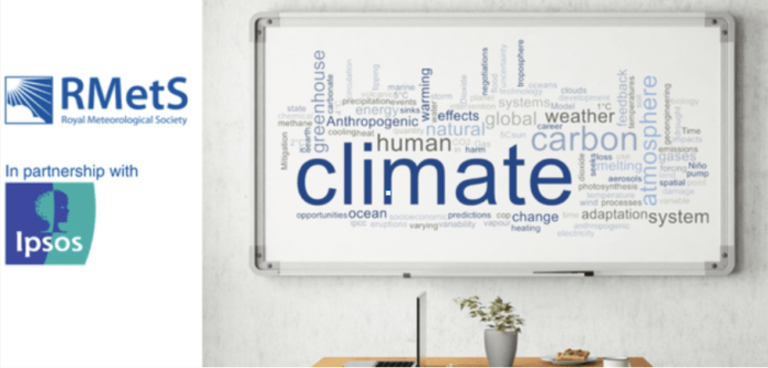Market research conducted by Ipsos on behalf of the UK’s Royal Meteorological Society (RMetS) has found notable gaps in the climate knowledge of students at British schools, despite nearly two-thirds expressing concerns about climate change.
Just over half of pupils in their final academic year can recall being taught about climate change in the past year, with one in five (20%) believing that they either have never been taught about it or cannot recall when they were taught about it. This comes as student campaigners are putting pressure on the government to include compulsory teaching about climate change and its impacts.
When asked how much the climate of the Earth had warmed since 1850, school leavers tended to overestimate, saying, on average, 2.5°C. According to the IPCC, the true value is closer to 1.1°C. Furthermore, 40% of those asked said that they did not know how much the climate had warmed and could not give an answer.
Pupils were also unsure which sources had contributed the most to global warming, with only 18% correctly identifying that industry, electricity and heat production had the biggest impact. Positively, almost half (48%) correctly identified that natural changes (such as volcanoes and variations in the sun’s and Earth’s orbit) contributed the least to global warming.
Climate concern
Despite mixed knowledge about climate change and its causes, 6 in 10 (62%) school leavers said they are very or fairly concerned about climate change. This rises to 74% among students who reported that they felt they were doing well at school. Furthermore, 59% of pupils think that climate change will impact them personally a great deal or quite a bit in their lifetime, with one in five (19%) saying it would affect them a great deal. Only 8% of students said that climate change would not affect them at all.
Dr Sylvia Knight, head of education at RMetS, said, “These results give us a really useful baseline against which we can measure the impact of future interventions on the climate literacy of our school leavers. At the RMS, we are working very hard to see how we can best support teachers of all subjects to make use of the opportunities within the current curricula and exam specifications to teach climate change. All students should leave school with the basic climate literacy that will enable them to engage with the messages put forward by the media or politicians, or make informed decisions about their own opportunities and responsibilities and equip them with the skills that they’ll need for the green careers of the future.”
Dr Pippa Bailey, head of the Ipsos climate change and sustainability practice, added, “This research tells us that despite more than half of school leavers saying that they have been taught about climate change in school in the past year, there are notable gaps in understanding around key messages regarding global temperature increase and the relative impact of different sectors contributing to climate change. However, this upcoming generation are clearly concerned and acknowledge that it will impact them personally, and there are signals that they need (and evidence in the media that they want) to be better informed to help shape the changes that will need to be made now and in the future.”



